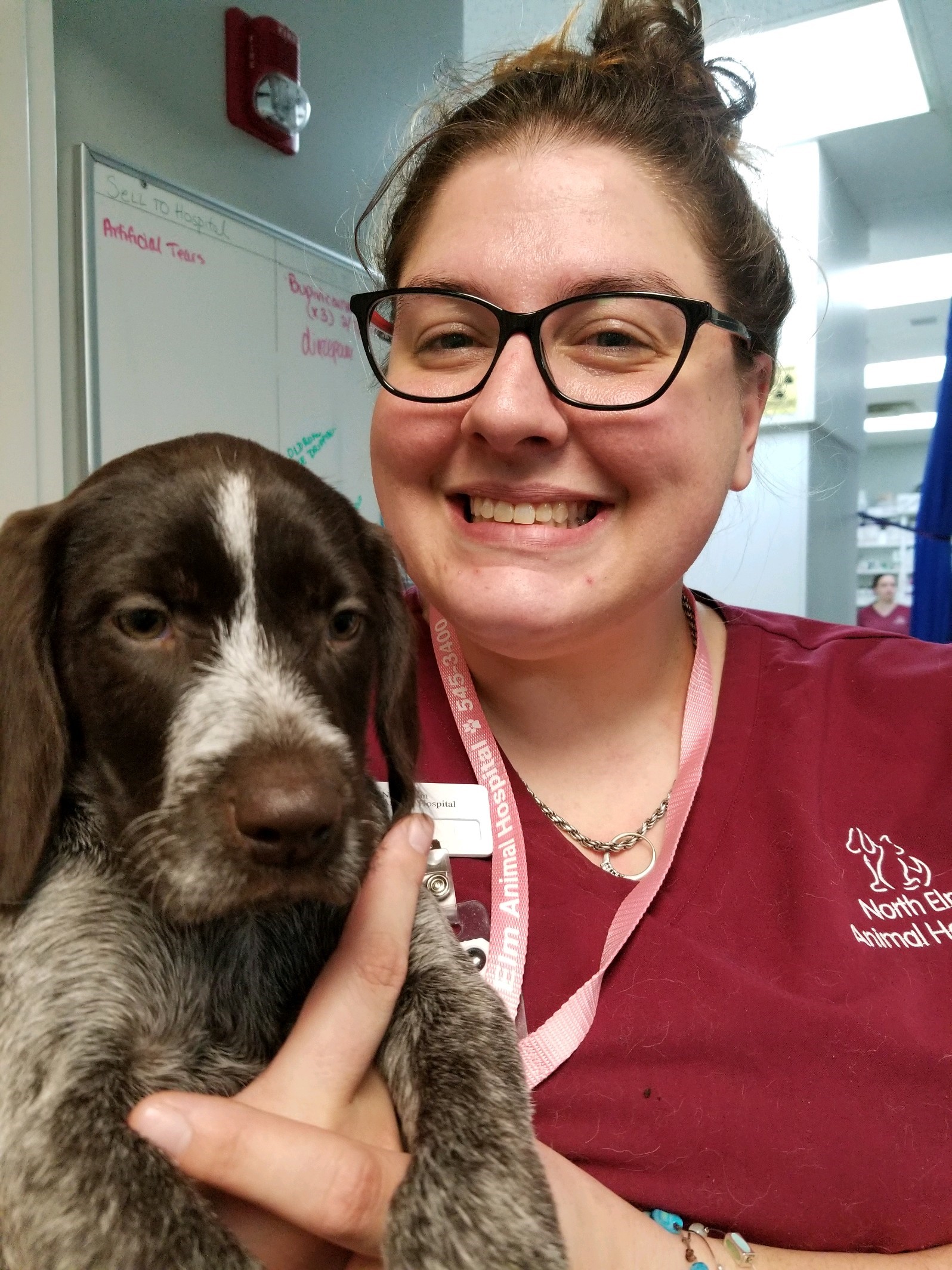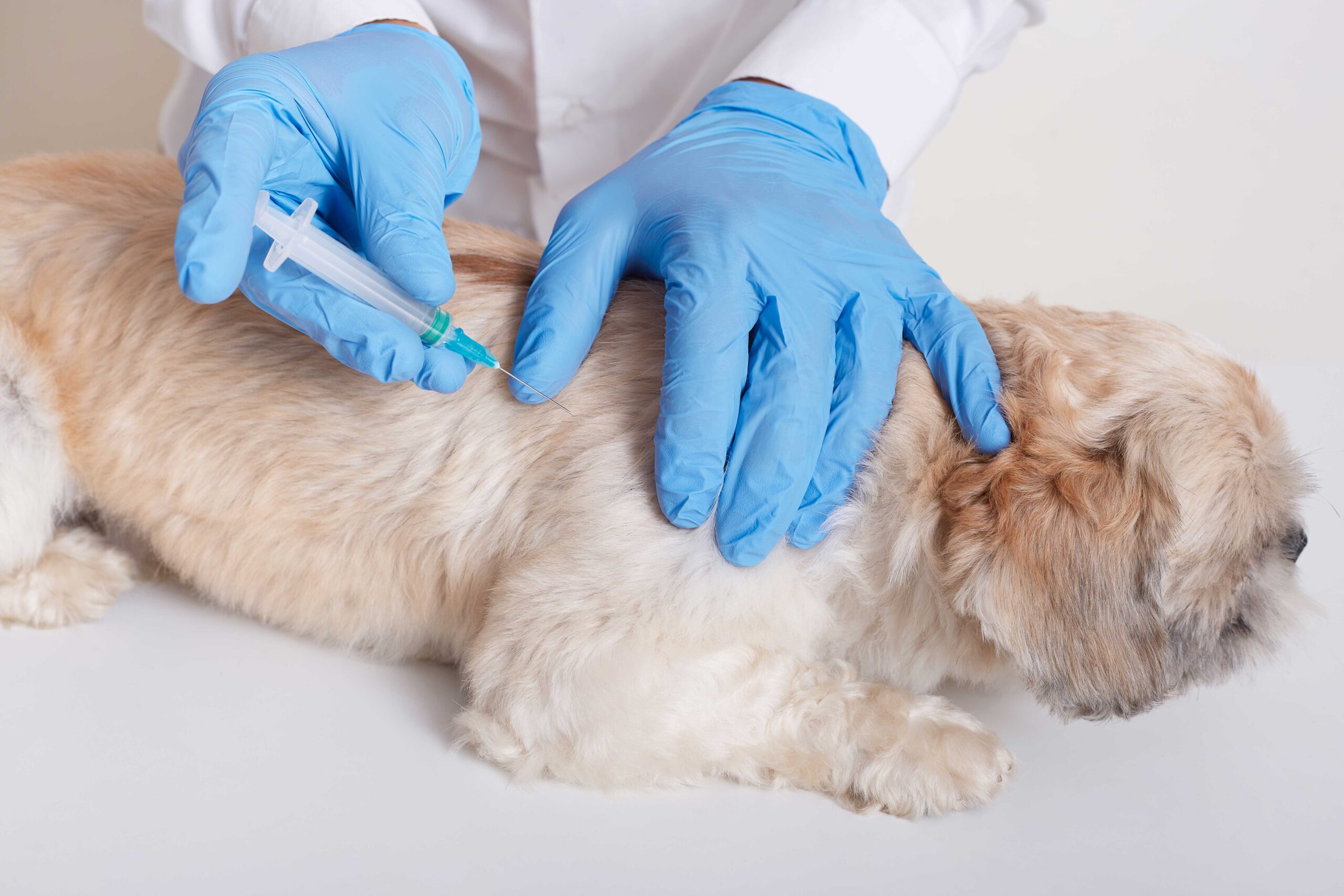Pet
Wellness Care
Pet Wellness Care
Kitten Vaccination Schedule
Kittens begin vaccinations at 7 to 8 weeks of age.
There are 3 main vaccines cats and kittens receive:
1. The FVRCP vaccine is given every 3 to 4 weeks until the kitten is 16 weeks old or older. The FVRCP vaccine is for Feline Viral Rhinotracheitis, Calici viris, and Panleukopenia. Rhinotracheitis is caused by an airborne virus and cause respiratory signs such as sneezing and ocular discharge. Panleukopenia causes a severe drop in the white blood cell count and can be fatal. The FVRCP is repeated in one year, and then given every 3 years.
2. Feline Leukemia (FeLV) is a virus that can be transmitted by direct contact between cats or from a mother to her offspring. We recommend that kittens be tested for Feline Leukemia at 9 weeks of age unless the mother cat is definately feline leukemia negative. Cats are vaccinated with 2 vaccines given 3 to 4 weeks apart, starting at 9 weeks of age or older. Your vet will help you decide if your kitten is at risk for FeLV and should be vaccinated. FeLV is boostered in a year and then every three years.
3. Rabies – All kittens and cats and are required by law to be vaccinated for rabies. The vaccine is given once at 13 to 16 weeks of age or older, then annually thereafter. Rabies is a deadly virus spread primarily by raccoons, foxes, skunks, and bats.
Puppy Vaccination Schedule
There are 3 main vaccines that puppies and dogs receive:
1. The DHPP or DHLPP vaccine is given to puppies starting at 6 weeks of age or older and is given every 3 to 4 weeks until the puppy is 16 weeks or older. The “D” is for Distemper, a contagious virus that can cause many symptoms including fever, respiratory signs, and neurologic signs, and can be fatal. “H” is for Hepatitis, which is a contagious liver disease. “L” is for Leptospirosis, a spirochele that can cause liver and kidney disease. “P” is for Parainfluenza, part of a group of viruses that cause kennel cough, contagious bronchitis. The last “P” is for Parvovirus, a serious virus that causes vomiting, bloody stools, and a very low white blood cell count. Untreated, Parvo is usually fatal. The vaccine is administered in one year, then given every 3 years.
2. The Bordetella Vaccine is given to help prevent kennel cough, an airborne contagious cough that is easily spread between dogs. The vaccine is given once a year, usually starting at 10 weeks of age or older.
3. Rabies – All pups and dogs are required by law to be vaccinated for rabies. The vaccine is given once at 13 weeks or older, then boostered in 1 year. It is then given every 3 years in North Carolina, as mandated by state law. Rabies is a deadly virus spread primarily by raccoons, skunks, foxes, and bats.
There are also “non-core” vaccines for Lyme Disease and Canine Influenza. These are given to some dogs, depending on their lifestyle and travel habits.
Preventative care
The first line of defense in your pet’s health is an annual physical examination. A complete physical exam serves to detect any abnormalities that may exist as well as any changes that have occurred since previous exams. During the physical exam, the doctor will examine your pet’s eyes, ears, teeth, skin, and listen to its heart and lungs. We will feel the abdomen and your pet’s joints for abnormalities. Included in the annual exam is all of your pet’s necessary vaccinations along with dietary recommendations, parasite control, and health screening through blood, urine, and fecal tests. These components work together to prevent disease and help diagnose problems in their earliest stages.
The reason that the annual examination is so important is that animals naturally try to hide any illness or discomfort. This instinct is a survival mechanism that helps protect them from predators in the wild. However, in the comfort of your home, it is easy to overlook signs that your companion may be ill.
Strong advocates of the philosophy that “an ounce of prevention is worth a pound of cure,” the Doctors of North Elm recommend that a puppy or kitten’s first full examination take place when the animal is six to seven weeks of age. After completing the puppy or kitten series of exams and vaccines, each pet should continue to have a complete physical examination at approximately the same time each year; and more frequently as they become “senior citizens.”
Veterinary Services
Below are all of the veterinary services we offer at North Elm Animal Hospital. If you have any questions regarding our services, please feel free to call us.


